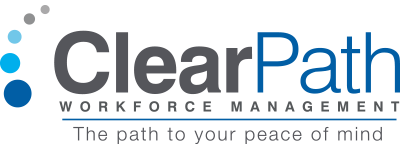Independent contractor (IC) misclassification liability can be crippling to most organizations, regardless of whether the employees have been mistakenly or intentionally misclassified. The U.S. Department of Labor, Internal Revenue Service (IRS), National Labor Relations Board (NLRB), State and other auditing agencies have successfully investigated and prosecuted hundreds of businesses that it concluded were misclassifying employees as independent contractors. They include both large and small enforcement actions, some resulting in seven-figure settlements.
DYI Independent Contractor Strategy
Despite all the attention that has been focused on the issues of independent contractor misclassification over the past few decades, most companies have yet to recognize that a potential problem exists, diagnose their gaps in the state of compliance or determine their potential exposure for IC misclassification liability. Fewer still have repaired, fixed, enhanced or updated their workforce models in a manner sufficient to minimize or eliminate the risks of costly government enforcement actions and litigation attacks.
Renee Fink, CEO of ClearPath Workforce Management, says, “Some companies may create their own IC Compliance evaluation questionnaire and think that by using it they are mitigating their risk for worker misclassification.”
This approach may not be adequate. For example, the questionnaire often doesn’t evaluate all aspects of the work to be done and the relationships of the parties.
Federal and State Agency Targeting
Businesses that use independent contractors to supplement their workforces or that operate on the basis of IC business models have increasingly been targeted by federal and state auditing agencies. IC misclassification lawsuits by individuals and class-certified plaintiffs have increased in both large and small businesses. Almost no industry is free from these types of lawsuits, although some industries have been harder hit and others are more vulnerable.
Using independent contractors is permissible if the relationships are structured, documented and implemented in compliance with applicable laws. Some workers that have been paid on a 1099 basis might welcome being reclassified as W-2, but may fail to understand why they were not treated as employees from the beginning of their project with the company. On the other hand, workers who are accustomed to being compensated on a 1099 basis may object vehemently to becoming an employee paid on a W-2 basis and losing tax advantages of self-employment, including tax deductions for legitimate business expenses.
Questions to ask
Ask yourself these questions: How much value does your organization place on those independent contractors you use? How would your business be impacted if your independent contractors were misclassified? Not only could you face hard costs for taxes, penalties, and fines, but it could cost you your workforce.
If you believe your IC Compliance strategy could use some fixing up, ClearPath can assist you in determining if your company may be at risk and provide solutions to ensure compliance. ClearIC™ can automate and simplify the Independent Contractor evaluation process while mitigating your risk. Contact ClearPath for a complimentary 1:1 review of your current worker status.
- Written by: Connie Wendt
- Posted on: March 26, 2018
- Tags: EMPLOYER OF RECORD SERVICE, ENGAGING W-2 WORKERS, INDEPENDENT CONTRACTOR COMPLIANCE, SELF SOURCED WORKERS, W-2 Worker Classification, Workforce Classification

